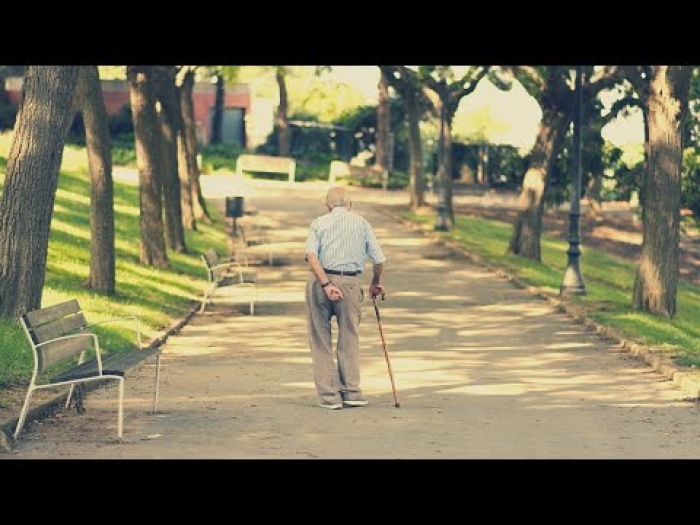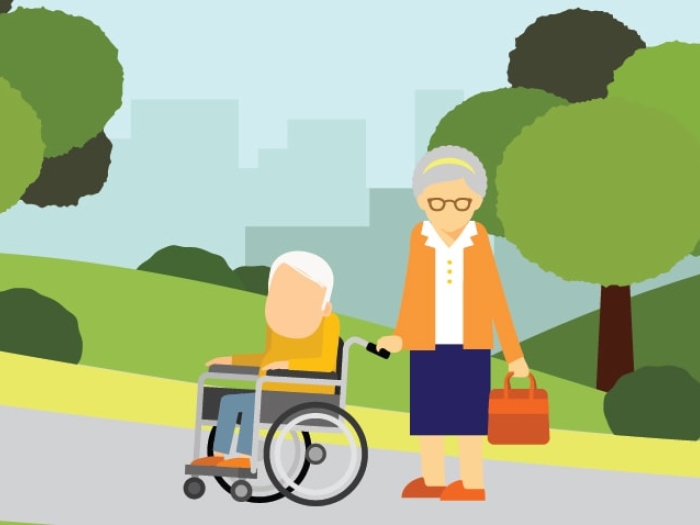New research in Alzheimer’s disease questions the effectiveness of existing medications, moving the focus to risk reduction and prevention.
11:30 AM
Author |

As the most common form of dementia and the sixth-leading cause of death in the U.S., Alzheimer's disease is not foreign to Americans. Many of us know someone battling the disease— a disease that doctors are still continuing to understand. While the majority of previous research has been focused on treatment, researchers are beginning to shift their attention toward prevention.
In a recent virtual presentation in partnership between the Alzheimer's Association's Michigan chapter and the Michigan Alzheimer's Disease Research Center, Bruno Giordani, Ph.D., professor in the departments of psychiatry, neurology and psychology, discussed the science behind Alzheimer's disease as well as the latest research from the most recent Alzheimer's Association International Conference. According to Giordani, new research findings led to "an entire change in the emphasis of research," as more evidence was released to support risk-reducing tactics over later treatment.
Alzheimer's disease involves memory loss, confusion and spatial difficulties, which all come down to the existence of amyloid plaques. Amyloid plaques, or the "hallmarks of Alzheimer's disease," as Giordani calls them, are clumps of misshapen proteins that form between nerve cells and essentially act as roadblocks for memory. Cell death also occurs in specific areas of the brain, such as the hippocampus, which is critical for areas of cognition like memory and spatial navigation.
Scientists are gaining a better understanding of the course of Alzheimer's disease, which progresses from the prodromal or pre-clinical period to mild cognitive impairment and then dementia. The knowledge of this path, as well as earlier tracking of amyloid, has given doctors the chance to work toward risk diagnosis and preventative medications, as opposed to later treatment of the disease.
"I'd usually tell you about all the exciting new amyloid drugs presented at the AAIC meeting; the amyloid busters that we can apply to get rid of amyloid in the brain. Frankly, these have not worked out as expected," Giordani explained. Researchers are now attempting to disrupt the process even earlier, before amyloid plaques form and begin to disturb memory.
In a recent discussion with Giordani, he highlighted news that Biogen, an American biotechnology company, completed a submission to the U.S. Food and Drug Administration for the review of aducanumab, an investigational treatment for Alzheimer's disease that targets amyloid in the brain in the hopes of reducing its buildup.
If approved, aducanumab would become the first therapy to reduce the clinical decline of Alzheimer's disease and would also be the first therapy to demonstrate that removing amyloid beta resulted in better clinical outcomes— which could be significant news for Alzheimer's treatment.
Exercise activities, social and emotional support, maintaining our general health, challenging our brain and watching our diet: these are five things we can all do to protect our brain,Bruno Giordani, Ph.D.
Researchers are also examining how parts of the body, other than the brain, may play a role in disease development. Studies have looked into the effect various medications individuals are already taking, such as insulin, and they're finding promising results.
A study looking at inhaled insulin showed some cognitive and amyloid-tau distribution improvements, but the type of inhaler seemed to make a big difference. Other approaches include studying gingivitis and other markers of inflammation, which Giordani says may help track the disease process earlier on as well.
Giordani also detailed the importance of understanding how the disease manifests in different groups of individuals. For example, "the network of tau distribution (another Alzheimer's disease pathological hallmark) in the brain of women is very different than men as the disease starts," he said, as Alzheimer's disease has been found to affect more women than men.
Researchers have also been interested in studying the disease in the LGBTQ community. "Older individuals with dementia from the [LGBTQ] community tend to live alone. They tend not to be partnered, they don't tend to have children who can take care of them, [and] so this can lead to very significant difficulty," Giordani explained.
Finally, Giordani described a new dementia classification called LATE, for individuals who develop dementia in their 80s and later. "This is a disease that looks like Alzheimer's disease, but it's related to a different protein," he described, which in turn causes them to not respond well to Alzheimer's treatment drugs.
No matter who you are, risk reduction may be the key to avoiding Alzheimer's disease, Giordani claims. Researchers have discovered that adopting four to five "low-risk factors" or preventative habits lowers the risk significantly, even for individuals with a high genetic risk.
"Exercise activities, social and emotional support, maintaining our general health, challenging our brain and watching our diet: these are five things we can all do to protect our brain," Giordani said.
The Michigan Alzheimer's Disease Center's next virtual lecture is July 21, featuring Scott Roberts, Ph.D., discussing "Can Alzheimer's Disease be Prevented?" Sign up on the center's website.

Explore a variety of healthcare news & stories by visiting the Health Lab home page for more articles.

Department of Communication at Michigan Medicine
Want top health & research news weekly? Sign up for Health Lab’s newsletters today!





